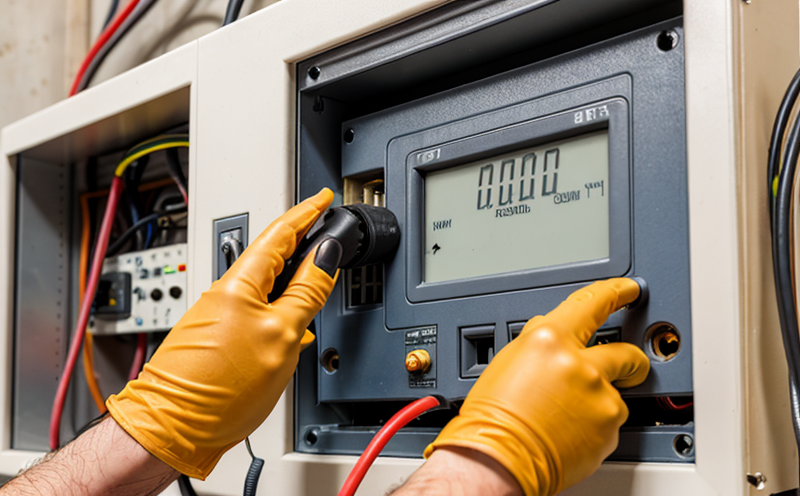ISO 18243 Functional Testing of Lithium-Ion Batteries for Light Electric Vehicles
The ISO 18243 standard is pivotal in ensuring that lithium-ion batteries used in light electric vehicles (LEV) meet stringent functional testing requirements. This testing guarantees the safety, performance, and reliability of LEV batteries across various operational conditions. The primary objective is to identify potential issues early on, thereby enhancing overall vehicle safety and longevity.
The testing protocol specified by ISO 18243 involves a series of critical steps aimed at simulating real-world driving scenarios. These include load cycling, charging and discharging under controlled conditions, thermal stress tests, vibration tests, and more. Each step is meticulously designed to assess the battery's performance under stressors that mimic actual use.
Load cycling evaluates how well the battery can handle repeated charge-discharge cycles without degradation. This is crucial for ensuring long-term reliability in vehicles where batteries are frequently charged and discharged during daily operations. Charging and discharging tests, on the other hand, assess the battery's ability to accept a charge efficiently and maintain its capacity over multiple recharges.
Thermal stress testing simulates extreme temperatures that the battery might encounter during use. This is essential for ensuring that the battery can function safely in both hot and cold climates. Vibration tests are conducted to gauge how well the battery withstands the dynamic forces it may experience during transportation or operation on bumpy roads.
The standard also mandates testing under a variety of environmental conditions, including humidity levels and altitude changes, which can significantly impact battery performance. These comprehensive tests help manufacturers identify any weaknesses in their products early in the development phase, allowing for necessary adjustments to be made before mass production begins.
Compliance with ISO 18243 is not just about meeting regulatory requirements; it’s also a commitment to delivering high-quality, safe, and reliable batteries. By adhering strictly to these guidelines, laboratories ensure that the products they test are ready for real-world application. This testing process helps build trust among consumers who rely on LEVs as a sustainable transportation option.
ISO 18243 functional testing of lithium-ion batteries is increasingly recognized worldwide due to its stringent criteria and comprehensive approach. It provides a robust framework for assessing the performance and safety of these critical components in electric vehicles, ensuring they meet international standards of quality and reliability.
Why It Matters
The importance of ISO 18243 functional testing cannot be overstated, especially considering the growing demand for sustainable transportation solutions. Ensuring that lithium-ion batteries in light electric vehicles meet these stringent standards is crucial not only from a technical perspective but also from an environmental standpoint.
- Enhanced Safety: By rigorously testing batteries under various conditions, ISO 18243 helps prevent potential hazards associated with battery malfunctions. This includes reducing the risk of overheating, short circuits, and other safety concerns that could lead to accidents or fires.
- Better Performance: The thorough testing process ensures that batteries operate efficiently under all expected conditions, leading to improved vehicle performance and reduced downtime.
- Eco-Friendly Solutions: By promoting the use of reliable and efficient batteries, ISO 18243 supports the development of greener transportation options. This contributes positively to global efforts towards reducing carbon emissions and combating climate change.
In summary, compliance with ISO 18243 is essential for manufacturers looking to produce safe, reliable, and environmentally friendly light electric vehicles. It ensures that the batteries used in these vehicles are capable of performing optimally under real-world conditions, thereby enhancing user confidence and satisfaction.
Applied Standards
The ISO 18243 standard is part of a broader set of international standards designed to ensure the quality and reliability of lithium-ion batteries for electric vehicles. This includes other relevant standards such as ISO 19506, which deals with safety aspects of battery systems, and IEC 62660-1, which provides guidelines on the design and construction of traction batteries.
ISO 18243 specifically focuses on functional testing, providing detailed procedures for evaluating the performance characteristics of lithium-ion batteries in light electric vehicles. It covers aspects such as electrical resistance, internal impedance, capacity retention, and more. These parameters are crucial in determining whether a battery meets the necessary standards for safe and efficient operation.
The application of these standards ensures that manufacturers can produce batteries that not only meet regulatory requirements but also exceed expectations in terms of performance and safety. By adhering to ISO 18243, laboratories play a vital role in maintaining high-quality testing practices that contribute to the overall success of the electric vehicle industry.
International Acceptance and Recognition
- Global Adoption: The ISO 18243 standard has gained widespread acceptance across numerous countries, including major automotive markets such as the United States, Europe, and Asia. Many manufacturers now consider compliance with this standard as a benchmark for producing reliable lithium-ion batteries.
- Regulatory Compliance: Several regions have begun integrating ISO 18243 into their regulatory frameworks, recognizing its role in enhancing safety and performance standards. This integration ensures that products meet not only local but also international benchmarks.
- Certification Programs: Various certification programs worldwide now include ISO 18243 as a key component of their assessment criteria. Laboratories accredited to perform these tests are recognized for providing accurate, reliable, and consistent results.
The global acceptance of ISO 18243 underscores its significance in the electric vehicle industry. Its widespread use and recognition across different regions highlight the importance of adhering to international standards when it comes to testing lithium-ion batteries.





